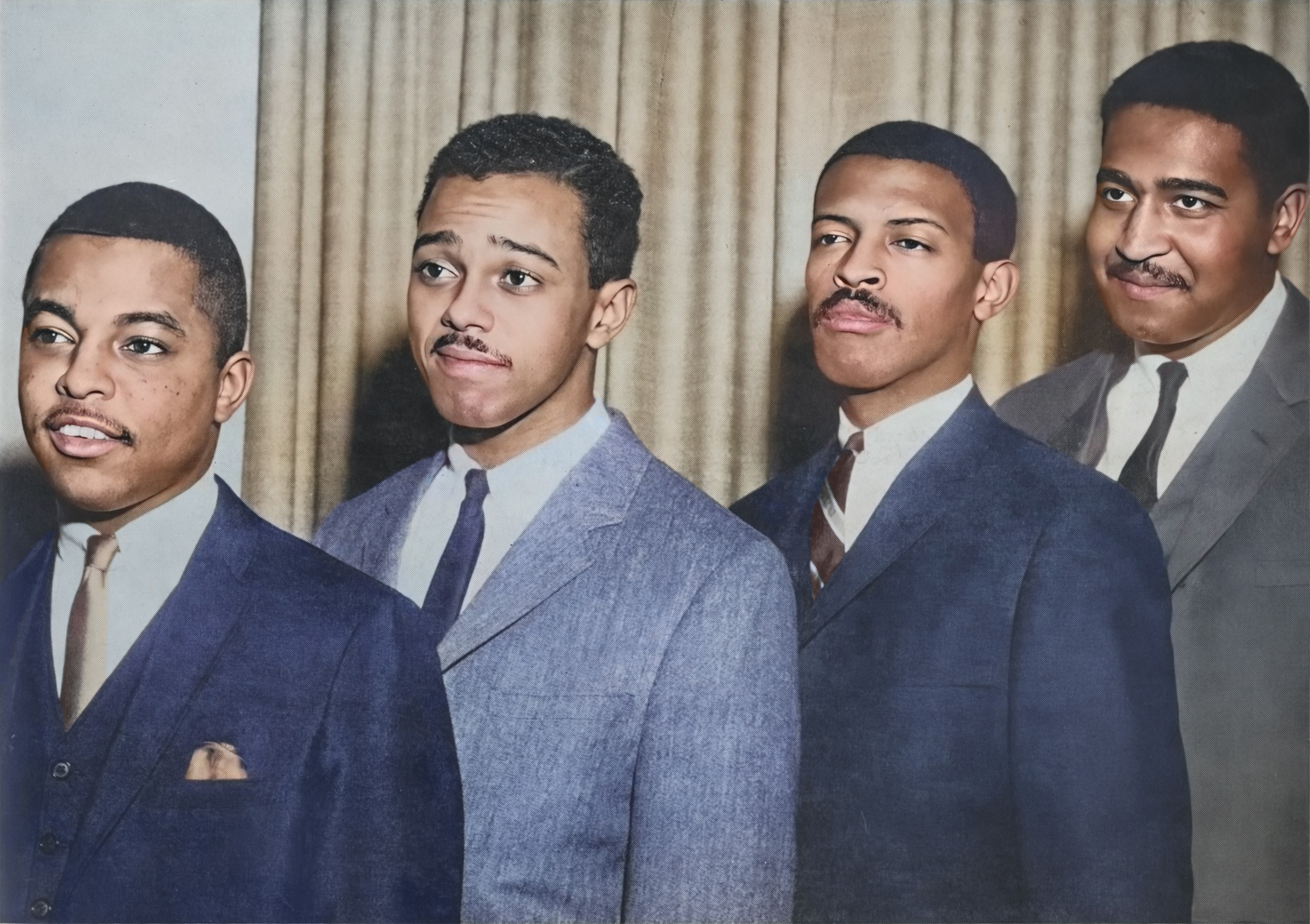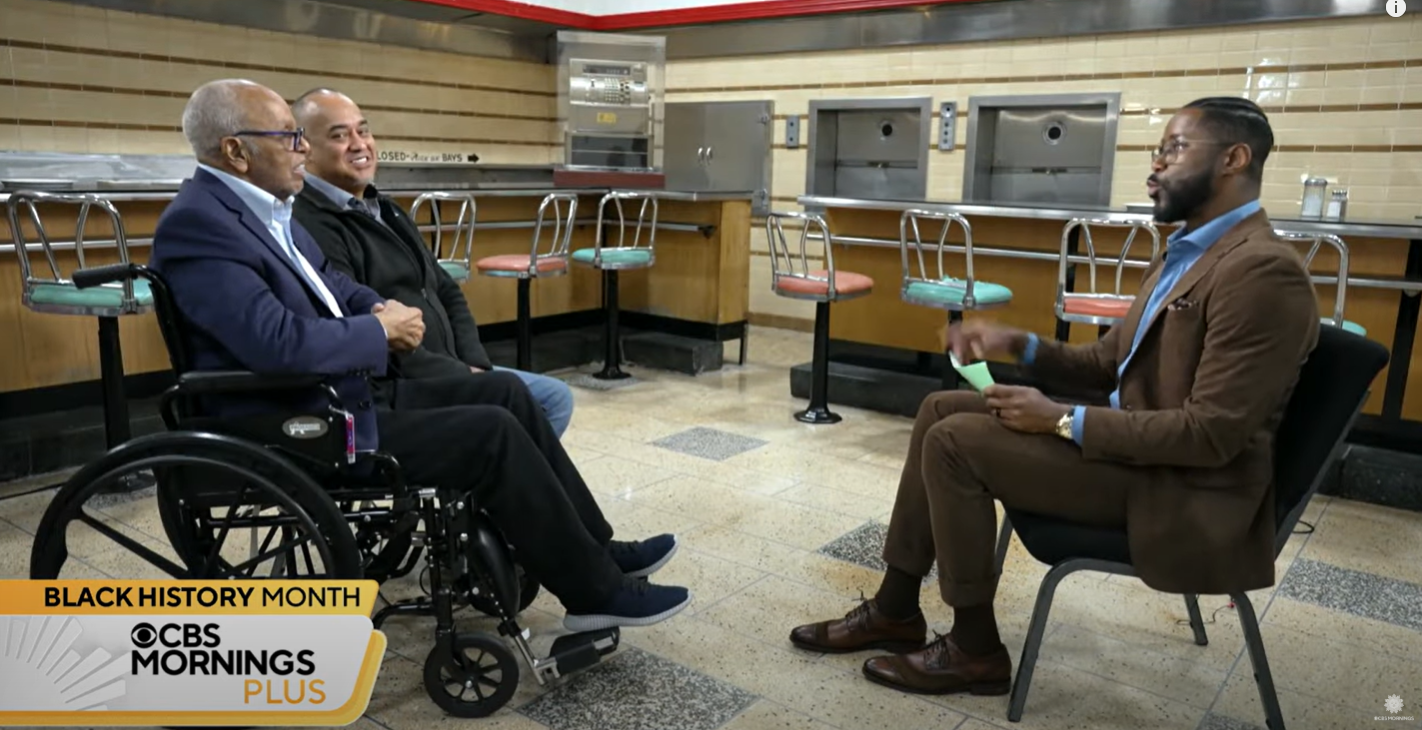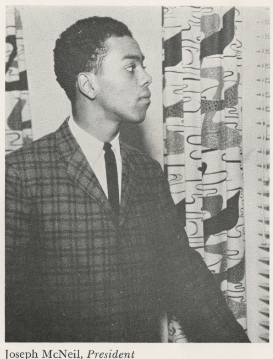
Maj. Gen. Joseph McNeil of Legendary A&T Four Passes Away at 83
By Todd Simmons / 09/04/2025 Alumni
- 4-H and Youth Development News
- Academic Affairs News
- Accounting and Finance News
- Administration and Instructional Services News
- Admissions News
- Agribusiness, Applied Economics and Agriscience Education News
- Agricultural and Natural Resources News
- All News
- Alumni News
- Animal Sciences News
- Applied Engineering Technology News
- Athletics News
- Biology News
- Built Environment News
- Business and Finance News
- Business Education News
- CAES News
- CAHSS News
- Chancellor's Speaker Series
- Chancellors Town Hall Series
- Chemical, Biological, and Bio Engineering News
- Chemistry News
- Civil, Architectural and Environmental Engineering News
- COAACH News
- COE News
- COED News
- College News
- Community and Rural Development News
- Computational Science and Engineering News
- Computer Science News
- Computer Systems Technology News
- Cooperative Extension News
- COST News
- Counseling News
- Criminal Justice News
- Deese College News
- Economics News
- Educator Preparation News
- Electrical and Computer Engineering News
- Employees News
- Energy and Environmental Systems News
- English Department News
- Faculty News
- Family and Consumer Sciences News
- Graphic Design Technology News
- Hairston College News
- Headlines News
- History & Political Science News
- Honors College News
- Human Resources News
- Industrial and Systems Engineering News
- Information Technology Services News
- Innovation Station News
- Journalism & Mass Communication
- JSNN News
- Kinesiology News
- Leadership Studies and Adult Education News
- Liberal Studies News
- Library News
- Magazine News
- Management News
- Marketing News
- Mathematics News
- Mechanical Engineering News
- Media Spotlight News
- Natural Resources and Environmental Design News
- News Categories
- Nursing News
- Physics News
- Psychology News
- Research News
- Social Work News
- Staff News
- Strategic Partnerships and Economic Development News
- Student Affairs News
- Students News
- The Graduate College News
- Transportation & Supply Chain
- University Advancement News
- Visual & Performing Arts News
Remembering Maj. Gen. Joseph A. McNeil
McNeill family members, A&T alumni, faculty, staff, students and community members are invited to share special memories of Maj. Gen. Joseph A. McNeil. Click here to go to the web page that has been established for sharing these messages. Feel free to share the link with fellow Aggies and friends: https://www.ncat.edu/give/advancement/alumni-relations/joseph-mcneil.php.
EAST GREENSBORO, N.C. (Sept. 4, 2025) – Maj. Gen. Joseph McNeil, one of the legendary members of the A&T Four who electrified the Civil Rights movement with a sit-in that helped lay the groundwork for the 1964 Civil Rights Act, passed away this morning. He was 83.
McNeil was one of the final two living members of the A&T Four; Jibreel Khazan (formerly Ezell Blair Jr.) is now the only survivor. David Richmond passed away in 1990 and Franklin McCain in 2014.
All teenagers – McNeil was just 17 – when they launched the sit-in on Feb. 1, 1960, at the downtown Greensboro Woolworth’s, they had extraordinary national impact. They were also among numerous young people who became prominent around that time in the Civil Rights Movement, including such notable figures as John Lewis, Julian Bond, Diane Nash, Marion Barry and the Rev. Jesse Jackson, who enrolled at North Carolina A&T shortly after the A&T Four protest, to name just a few.

Despite health challenges, Maj. Gen. McNeil came back to A&T this past February to mark the 65th anniversary of the sit-in at the annual breakfast honoring the A&T Four. The audience at the breakfast gave him a standing ovation.
“Joseph McNeiland his fellow North Carolina A&T classmates inspired a nation with their courageous, peaceful protest, powerfully embodying the idea that young people could change the world. His leadership and the example of the A&T Four continue to inspire our students today,” said Chancellor James R. Martin II. “The North Carolina A&T family mourns his passage, but celebrates his long and incredible life and the legacy he leaves behind.”
McNeil and the A&T Four are venerated on campus with the February One Monument, a 15-foot-tall bronze and marble sculpture depicting the young men as they walked down the sidewalk to Woolworth’s. McNeil is also celebrated in his hometown of Wilmington, North Carolina, where a historical marker has been placed and a portion of Third Street is commemoratively named Maj. Gen. Joseph McNeil Way in his honor.

McNeil was born March 25, 1942, and grew up under the Jim Crow laws prevalent across the Deep South. He graduated from Williston Senior High School and enrolled at A&T in the fall of 1959. He took a bus to Greensboro and on the trip, stopped in a terminal to get something to eat.
“They said, ‘We can’t serve you here – you have to go around the corner there,’” he recalled in a 2014 interview with WUNC FM. “And for me, that was the final blow of humiliation. And I had had enough. And I made up my mind that I had to do something.”
McNeil, McCain, Richmond and Blair lived on the same floor of their dormitory. They shared the anger many Black youth had at the time with oppressive, anti-Black laws and social norms they encountered daily and bonded over McNeil’s idea that they should do something to push back.
McNeil was part of the Reserve Officer Training Corps (ROTC) at A&T, which helped inform his idea of how to mobilize group action around a goal. He was also a strong believer in the idea that the Civil Rights movement could only achieve its goals with a nonviolent approach to change, one that included religion. He frequently spoke with a local member of the NAACP, Ralph Johns, about organizing a sit-in, and shared his ideas with the other members of the Four. Together, they hatched a plan.
On the afternoon of Monday, Feb. 1, they walked downtown to Woolworth’s. After purchasing a few items from the store, they seated themselves at the store’s “whites-only” lunch counter and asked to be served. Shocked that anyone would challenge their approach to only serving Black patrons at a window at the back of the store, Woolworth’s staff refused to take their orders. The Four stayed in their seats until the store closed.
Back on campus, word of their actions spread quickly. They returned the next day, accompanied by 20 other students. They returned the following day, this time with 60 fellow protesters. By the end of the week, the store and surrounding area were taken over by the now very large protest.
McNeil’s ROTC training became significant as the protest grew and expanded to additional restaurants across town. Along with students from A&T, Bennett College, Dudley High School and the University of North Carolina Greensboro, McNeil and his classmates kept the Woolworth’s protest going while coordinating activity at multiple locations in an era long before cell phones, text messages and email.
In mid-March, even President Dwight Eisenhower weighed in on the nationally prominent protest, expressing sympathy with the students and their work to “enjoy the rights of quality that are guaranteed by the Constitution.”

On July 25, 1960, Woolworth’s finally served four Black patrons, and service policies at most of its stores throughout the South soon changed. When the Civil Rights Act passed in 1964, it mandated desegregation of public accommodations, such as lunch counters, and included robust protection against public accommodations discrimination.
McNeil reflected in 2014 on the enormous legacy of the sit-ins.
“The sit-in was not about David Richmond, Frank McCain, Ezell Blair or Joe McNeil sitting down and having a cup of coffee next to a white person,” he said. “It was much deeper than that. It was about choice. It was about having the ability to say, ‘I choose to sit down.’ Or, ‘I choose to drink from that water fountain.’
“I don’t choose Black water or white water or colored water. I want water.”
Media Contact Information: jtorok@ncat.edu



